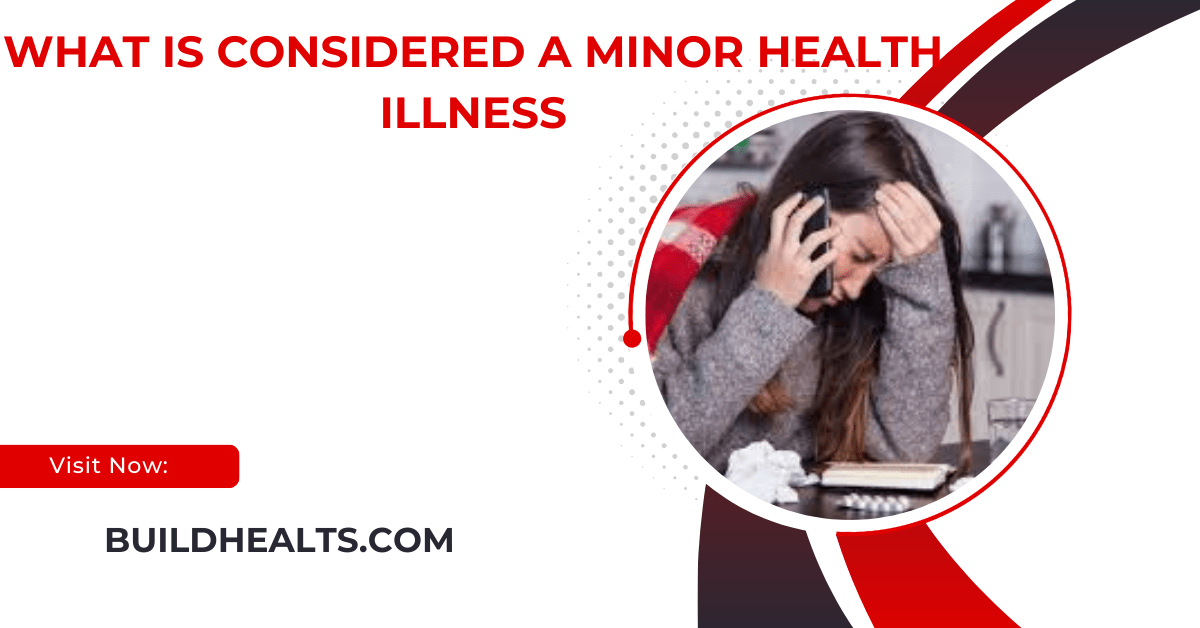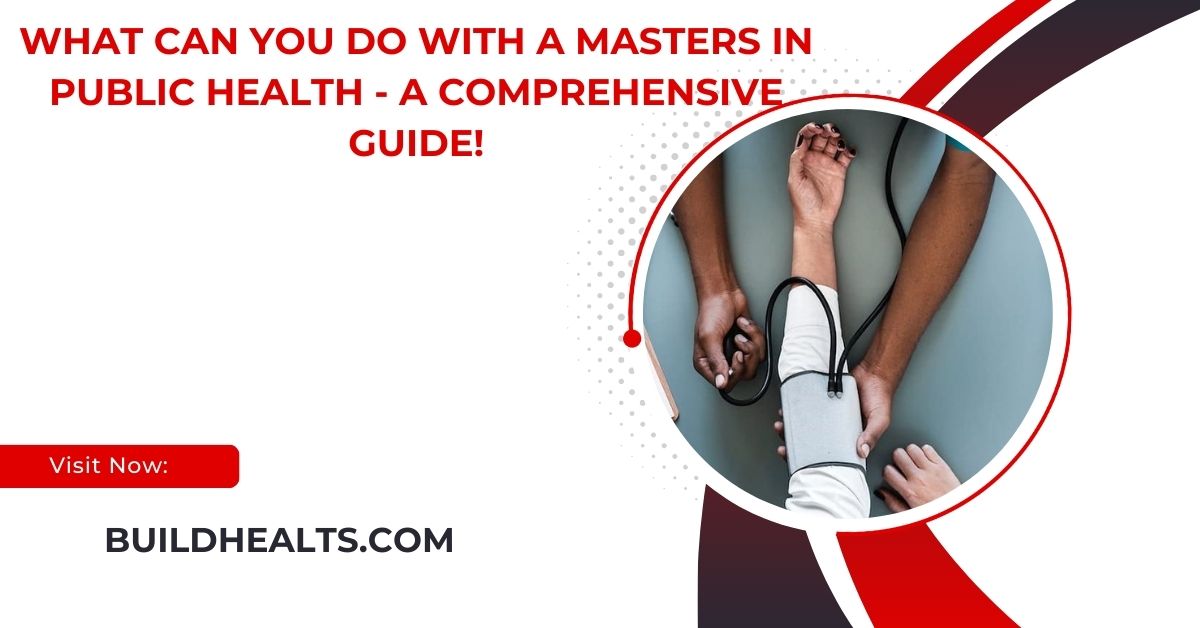A minor health illness is a non-life-threatening condition that typically resolves on its own or with basic treatment. Common examples include colds, mild headaches, and minor cuts.
When it comes to health, not every illness is severe or requires immediate medical attention. Many health issues are considered minor, meaning they are usually not life-threatening and can often be treated at home or with over-the-counter medication.
In this article, we will explore what constitutes a minor health illness, common examples, when to seek medical help, and tips for managing these conditions.
Understanding Minor Health Illnesses:

Definition of Minor Health Illnesses:
A minor health illness refers to any health issue that is not serious or life-threatening. These illnesses often resolve on their own or with simple treatment methods. They usually do not require extensive medical intervention or hospitalization. Minor health illnesses can include conditions like colds, headaches, and mild allergic reactions.
Importance of Recognizing Minor Health Illnesses:
Recognizing minor health illnesses is essential for managing your health effectively. Knowing what constitutes a minor illness can help you avoid unnecessary trips to the doctor and allow you to treat yourself at home. This knowledge can also help you understand when a condition may be worsening and requires medical attention.
Common Examples of Minor Health Illnesses:
1. Common Cold
The common cold is one of the most prevalent minor health illnesses. It is caused by viruses and leads to symptoms such as a runny nose, cough, sore throat, and fatigue. Most people recover from a cold within a week or two without needing medical treatment.
2. Seasonal Allergies
Seasonal allergies, also known as hay fever, occur when your immune system reacts to pollen or other allergens. Symptoms can include sneezing, itchy eyes, and nasal congestion. Over-the-counter antihistamines can help relieve these symptoms.
3. Mild Headaches
Mild headaches can result from stress, dehydration, or tension. These headaches are often manageable with rest, hydration, and over-the-counter pain relievers like ibuprofen or acetaminophen.
4. Gastrointestinal Upset
Minor gastrointestinal issues, such as mild stomach aches, gas, or diarrhea, can often be treated at home. Staying hydrated and eating bland foods can help soothe the stomach and alleviate symptoms.
5. Minor Cuts and Scrapes
Small cuts and scrapes are common minor injuries. They can usually be treated with proper cleaning and a bandage. It’s important to keep the area clean to prevent infection.
6. Mild Skin Rashes
Mild skin rashes can result from allergies, irritants, or minor infections. Over-the-counter creams or ointments can often relieve itching and discomfort.
Also read: Magnesium Welding Rods Health Hazards List – Key Health Hazards and Safety Tips!
When to Seek Medical Help:
Signs of a Serious Condition:
While many health issues are minor, it’s essential to know when to seek medical attention. If you experience any of the following symptoms, it may indicate a more severe condition:
- High fever: A fever above 101°F (38.3°C) can indicate a more serious infection.
- Severe pain: Intense pain, especially if it worsens over time, may require medical evaluation.
- Difficulty breathing: Shortness of breath or wheezing can signal respiratory issues.
- Persistent symptoms: If symptoms last longer than a few days or worsen, consult a healthcare professional.
Consulting a Healthcare Professional:
If you’re unsure whether your condition is minor or severe, it’s always best to consult a healthcare professional. They can help you assess your symptoms and determine the appropriate course of action.
What is a minor illness nurse?
A minor illness nurse is a healthcare professional who specializes in assessing and treating minor health conditions. These nurses often work in settings like urgent care clinics, primary care offices, or community health centers. Their main responsibilities include:
- Assessment: Evaluating patients’ symptoms and medical history to determine the severity of their condition.
- Diagnosis: Identifying common minor illnesses such as colds, allergies, minor injuries, and skin rashes.
- Treatment: Providing appropriate care, which may include administering medications, recommending over-the-counter treatments, and offering health education.
- Referral: If a patient’s condition is more serious than initially thought, the minor illness nurse may refer them to a doctor or specialist for further evaluation and treatment.
Overall, minor illness nurses play a crucial role in delivering accessible healthcare for non-life-threatening conditions, helping to relieve the burden on primary care and emergency services.
Managing Minor Health Illnesses at Home:

1. Rest and Hydration
When dealing with minor health illnesses, rest and hydration are essential. Your body needs time to recover, and staying hydrated helps support your immune system. Drink plenty of water, herbal teas, or clear broths to stay hydrated.
2. Over-the-Counter Medications
Over-the-counter medications can help relieve symptoms associated with minor health illnesses. Common options include:
- Pain relievers: Acetaminophen or ibuprofen can help reduce pain and fever.
- Antihistamines: These can alleviate allergy symptoms such as sneezing and itchy eyes.
- Cough syrups: Cough syrups can soothe a sore throat and reduce coughing.
3. Home Remedies
Many home remedies can effectively manage minor health illnesses. Here are a few options:
- Saltwater gargle: Gargling with warm salt water can help soothe a sore throat.
- Steam inhalation: Inhaling steam can relieve nasal congestion and sinus pressure.
- Honey and lemon: Mixing honey and lemon in warm water can soothe a cough and sore throat.
4. Healthy Lifestyle Choices
Maintaining a healthy lifestyle can help prevent minor health illnesses. Here are some tips:
- Eat a balanced diet: Include fruits, vegetables, whole grains, and lean proteins in your meals.
- Exercise regularly: Physical activity can strengthen your immune system and improve overall health.
- Get enough sleep: Aim for 7-9 hours of quality sleep each night to support your body’s recovery processes.
Preventing Minor Health Illnesses:
Practice Good Hygiene:
Good hygiene practices can help prevent the spread of germs and reduce your risk of minor health illnesses. Here are some essential tips:
- Wash your hands regularly: Use soap and water, especially before eating or after being in public places.
- Avoid close contact with sick individuals: Keep your distance from those who are ill to reduce your risk of exposure.
- Cover your mouth and nose when sneezing or coughing: Use a tissue or your elbow to prevent spreading germs.
Stay Vaccinated:
Vaccinations can protect you from certain minor health illnesses, such as the flu. Consult with your healthcare provider about recommended vaccines and stay up-to-date on immunizations.
Manage Stress:
Chronic stress can weaken your immune system and make you more susceptible to minor health illnesses. Here are some strategies for managing stress:
- Practice relaxation techniques: Meditation, yoga, or deep breathing exercises can help reduce stress levels.
- Engage in hobbies: Spend time doing activities you enjoy to relax and unwind.
- Stay connected with loved ones: Social support is vital for managing stress and promoting overall well-being.
FAQ’S
1. What are some common examples of minor health illnesses?
Common examples include the common cold, seasonal allergies, mild headaches, gastrointestinal upset, minor cuts, and mild skin rashes.
2. When should I seek medical help for a minor illness?
Seek medical help if you experience high fever, severe pain, difficulty breathing, or if your symptoms persist or worsen over a few days.
3. How can I manage a minor health illness at home?
Manage minor illnesses by getting plenty of rest, staying hydrated, using over-the-counter medications, and trying home remedies.
4. What role does a minor illness nurse play?
A minor illness nurse assesses and treats minor health conditions, provides health education, and refers patients to doctors if necessary.
5. How can I prevent minor health illnesses?
Prevent minor illnesses by practicing good hygiene, staying vaccinated, and managing stress through relaxation techniques and engaging in hobbies.
Conclusion
In summary, minor health illnesses, like colds and mild headaches, are non-life-threatening and often resolve on their own. Recognizing and managing these conditions effectively can reduce unnecessary medical visits. Good hygiene and a healthy lifestyle help prevent minor illnesses and promote well-being.




